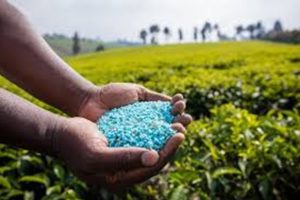
BY MENGISTEAB TESHOME
Ethiopia is the home of Arabica and the world’s fifth largest Coffee producer. At the same time it is the biggest producer in Africa. Almost 50% of the Ethiopian coffee is consumed domestically and the market is expected to show a steady growth.
Experts say that the diversity of Ethiopia’s coffee is unique and is finest, in terms of quality, beating coffee producing countries. However, farmers and plantation owners have not been able to get the returns they deserve, mainly due to lack of technology, lack of variety of beans and improper distribution. Recent government initiatives in favor of the export business have helped in improving the scenario to change.
Because of the chain of problems in the sector, the revenue generated in the Ethiopian Coffee Business and its brand value has mainly been affected by the legal framework for exports. Due to the value of Ethiopian coffee all over the world, the Ethiopian government has been emphasizing on its trade through commodity exchange, which simply, cannot survive without coffee. Recent changes in Legislature have given the Commodity Market and a few government-approved cooperatives the authority to grade all the coffee by quality and trade it accordingly.
This effort helped to curb the interaction between hundreds of small local cherry-processing stations with foreigners. The valuation they got from these customers added value to their product. However, Starbucks- the world’s biggest specialty coffee company and many others, buy Ethiopian coffee through the exchange. Starbuck’s Ethiopia Sidamo blend hails from the country’s southernmost region. The market is also affected by advancements in technology and the increasing variety of seeds available globally.
On the basis of type, the Coffee Market has been traditionally divided into three main types- Arabica, Robusta and Liberica. Production as well as consumption of Robusta and Liberica varieties, is almost negligible.
On the basis of the end product, it can be divided into Coffee Powder, Pod, Capsule, Dips, etc. However, the processed forms are less popular than the whole, roasted coffee beans, which are available throughout the country in abundance. On the basis of the market, the divisions are domestic and international. The revenue generated by Ethiopia’s coffee exported internationally is greater than that due to local consumption by manifolds.
Yes, coffee: Ethiopia’s main agricultural crop accounts for over a quarter of all export earnings and providing income for about 15 million people, most of them are small holder farmers. The coffee industry in Ethiopia supports small and medium-sized enterprises as well as larger exporting, trading and shipping businesses.
According to performance report Ethiopian Arabica coffee exports account for 25-30% of the region’s total export revenue. Ethiopia
alone accounts for 29% of the African coffee trade- being the largest producer of Coffee in the continent. Large Global Brewing Giants in the developed countries are regular customers of Ethiopian Coffee. The United States of America, Belgium, Spain, France Germany, Italy, Saudi Arabia, the United Kingdom, and Sudan are the major importers of the Ethiopian Arabica coffee.
Above all, there are many distinct growing regions throughout Ethiopia, with the most common ones as follows: Yirgacheffe, Sidamo, Harrar, Bebeka, Teppi, Limu, Jimma, Illubabor, Nekemtie, Wellega, Gimbi. Of the lists Yirgacheffe, Harrar and Sidama are the most well-known regional areas where coffee is harvested.
In bid to widen the marketability and letting international firms to know the taste and flavor of Ethiopia of late, Ethiopia participated in the Coffee Tasting Program organized by the International Trade Centre /ITC/ in Geneva, Switzerland that gave an opportunity to increase the marketing.
Zenebe Kebede, Ambassador, Extraordinary, Plenipotentiary and Permanent Representative of the Permanent Mission of the Federal Democratic Republic of Ethiopia to the United Nations Office and other international organizations in Geneva attended and made an opening remark at the program.
Ambassador Zenebe appreciated Pamela Coke-Hamilton, Executive Director of the International Trade Centre, for the invitation rendered to him to make an opening remark on this important event that focused on coffee, a beverage that is very close to all Ethiopians’ heart. He thanked ITC for its continued commitment and support of Ethiopia through several projects and creation of opportunities.
Ambassador Zenebe pointed out the historical origin of coffee; the unique attachment of Ethiopians to coffee; Ethiopia’s geographical ideal location for coffee production; coffee’s role in Ethiopian culture and social fabrics; its significant contribution to the country’s economy; its importance in protecting the country’s forests and woodlands diversity; the challenges and obstacles of Ethiopian coffee agronomy; as well as the government’s comprehensive strategy to boost the coffee sector.
Regarding the recent comprehensive strategy of the Government, Ambassador Zenebe mentioned that the government’s targets to address the dire challenges and to increase Ethiopia’s coffee export to 4.6 billion USD within 15 years, to increase the farmers’ income to reach to 3.5 billion USD and generate employment opportunity for 2.7 million people and its global market share to grow to 1.26 million MT by 2033.
As Ethiopia is in the process of acceding to the WTO, Amb Zenebe requested ITC to continue its all rounded technical and project-based support for the prompt completion of the country’s accession process. On the program, Ethiopian coffee entire ceremony was presented and served to the audiences.
The Coffee Tasting Program was attended by Pamela Coke-Hamilton, Executive Director of ITC, Marcel Vernooij, and Deputy Permanent Representative of The Netherlands to WTO, Ambassadors, Diplomats and other dignitaries.
Coffee probably began to be exported from the country as early as the 17th century, though trade didn’t become significant until the 19th century. Today, one can’t overstate the importance of coffee to the country’s economy. An estimated 15 million Ethiopians are employed by the coffee industry, and Ethiopia is hugely reliant of coffee as a major source of revenue: it accounts for close to 70% of all export earnings.
The Ethiopian Herald August 16/2022





